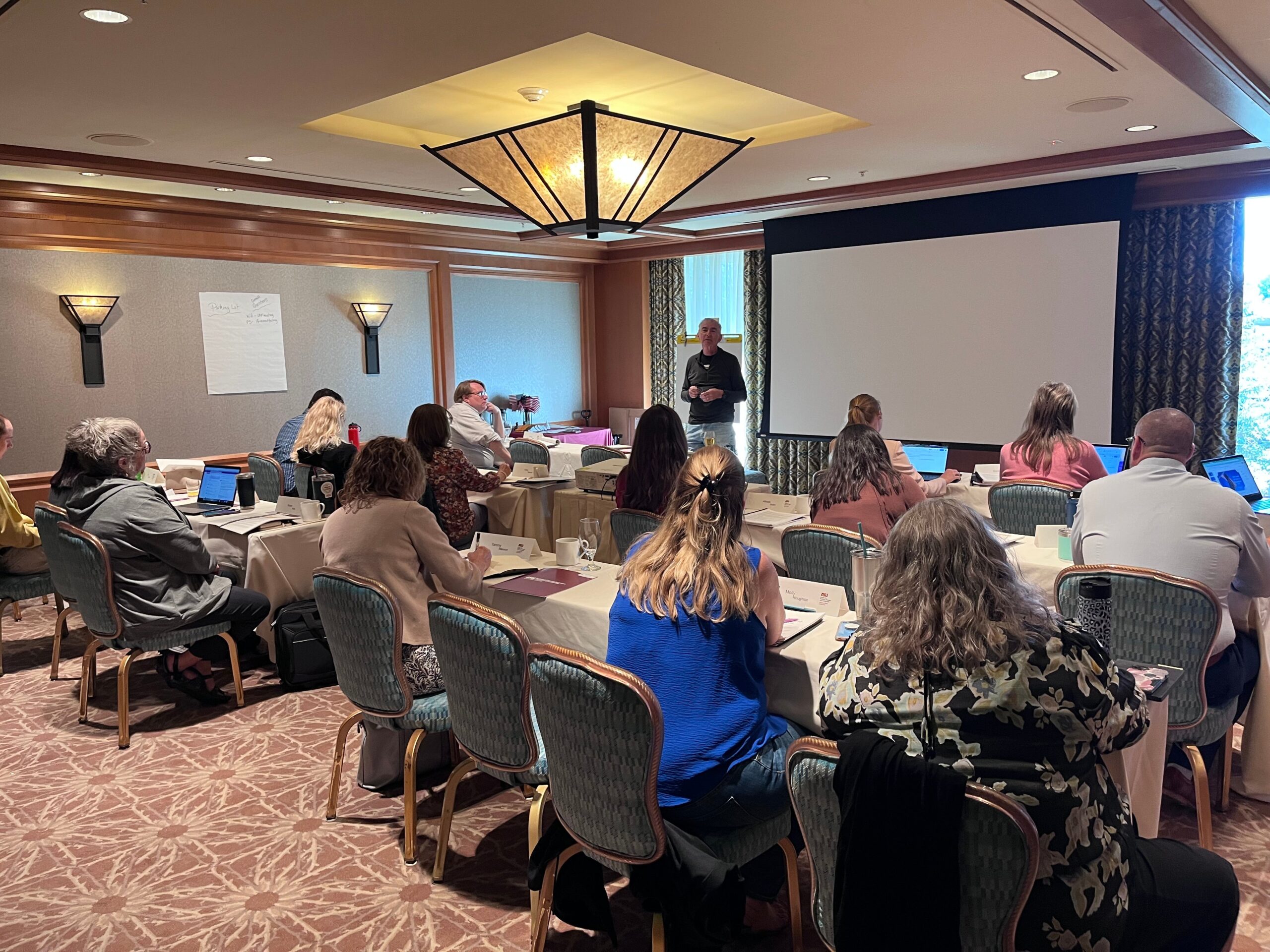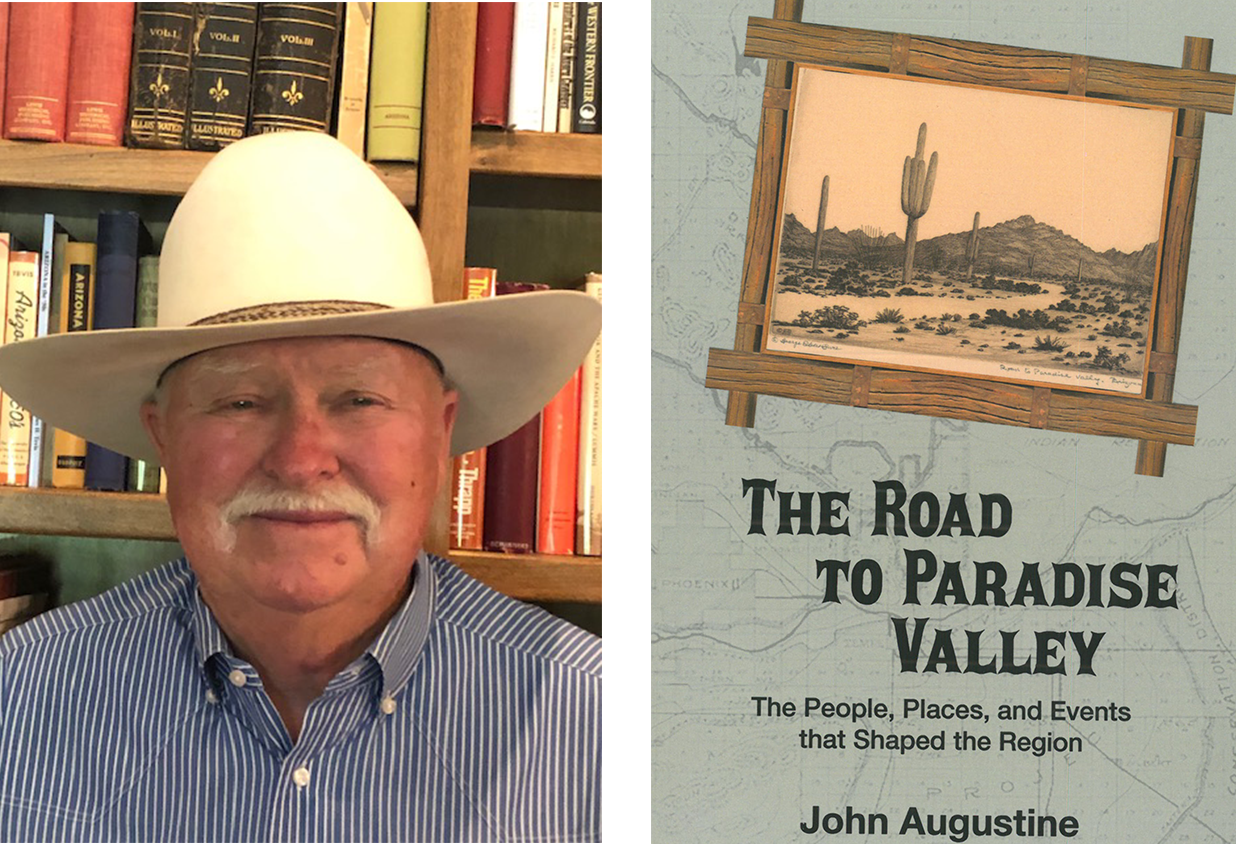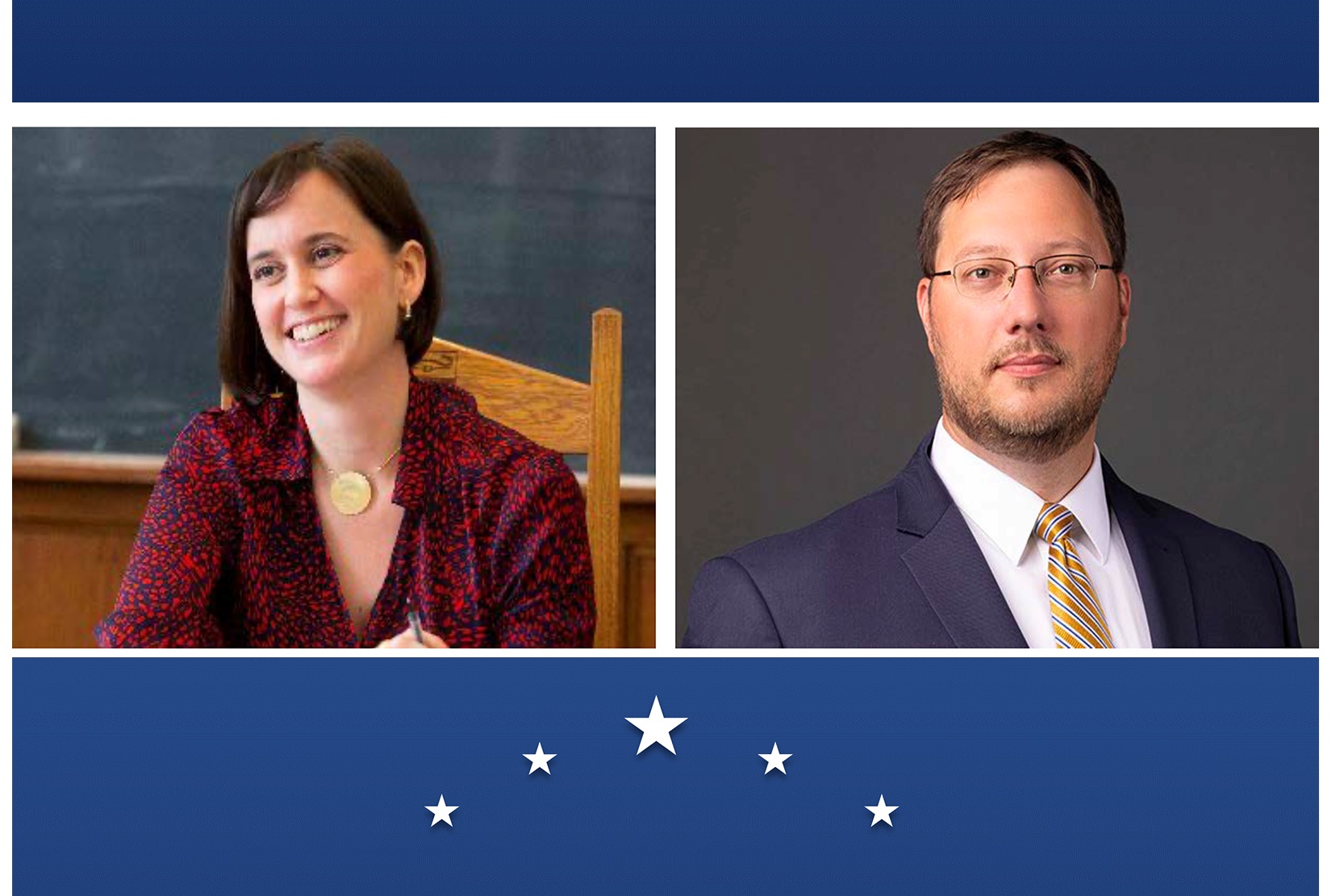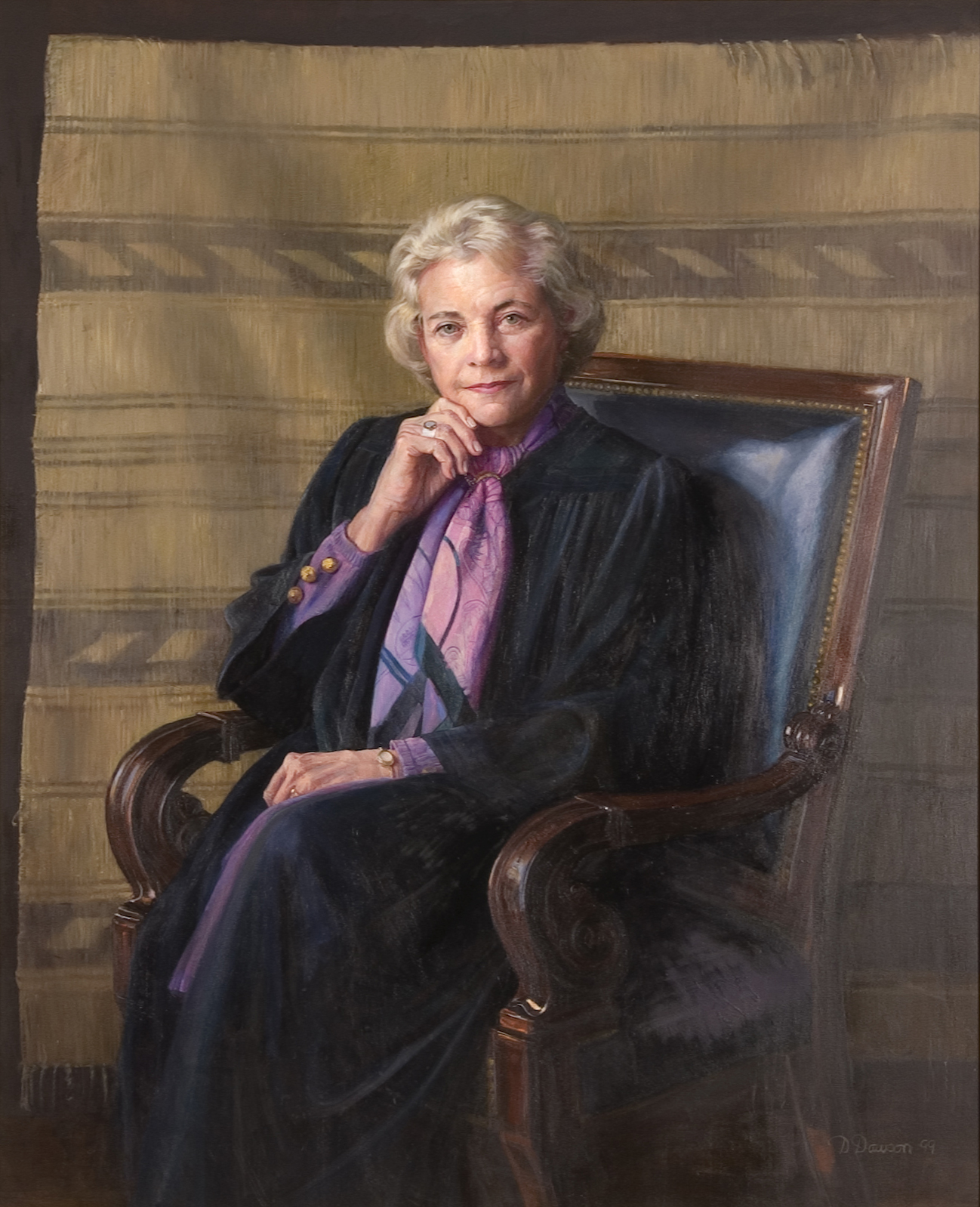Sandra Day O'Connor Day
Sandra Day O'Connor Day Is Sweet Justice For Famous Arizonan
Daylong tribute includes proclamations, presentations and roundtable discussions on civics and law
By Marshall Terrell
American Author and Journalist, ASU Now Reporter
The Sandra Day O'Connor Institute, Arizona State University and the State of Arizona are paying tribute to the life and civic contributions of Sandra Day O’Connor on the anniversary of her swearing in to the Supreme Court.
“Sandra Day O’Connor Day” will kick off on Sept. 25 at ASU Law on the Downtown Phoenix campus. The day-long celebration will include a proclamation from Arizona Gov. Doug Ducey, constitution law presentations, roundtable discussions and first-hand recollections of the state’s most famous member of the judiciary.
“There has been no greater champion for the things we most value as a society – justice, equality and the rule of law – than Sandra Day O’Connor,” said Douglas Sylvester, dean of the Sandra Day O’Connor College of Law. “She grew up in a much different world, but her brilliance, perseverance and principled leadership helped reshape it for the better. It is an incredible honor to pay tribute to her legacy.”
And what a legacy it is.
O’Connor is best known as the first woman to serve on the Supreme Court of the United States when appointed in 1981 by President Ronald Reagan, but her impact goes much deeper. O’Connor’s legal decisions were often the swing vote in divisive cases, and tackled issues such as gender discrimination, abortion rights, sexual harassment and freedom of religion.
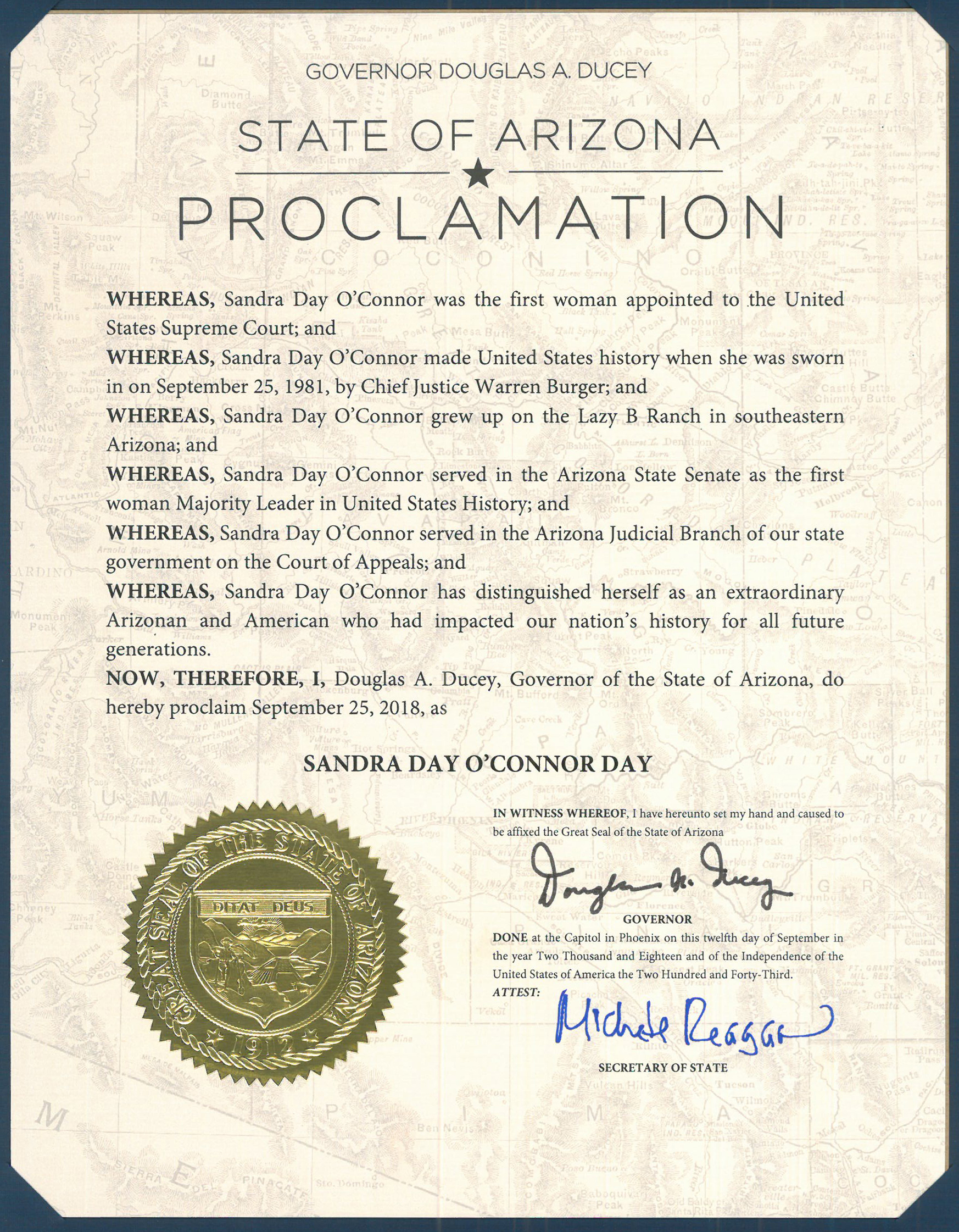
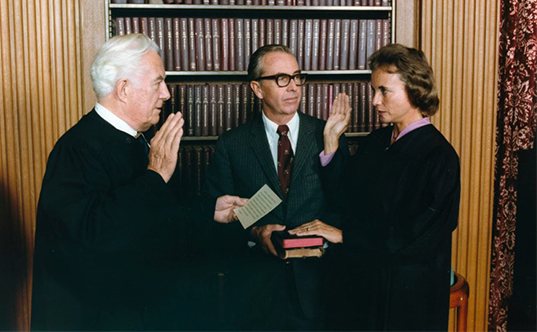
Sandra Day O'Connor is sworn in by Chief Justice Warren Burger, left, while her husband John Jay O'Connor watches. September 25, 1981.
Known mostly as a conservative justice and a proponent of judicial restraint, O’Connor also developed a reputation as an independent thinker and voter.
“Justice O’Connor was not a justice who hired like-minded clerks,” said Charles A. Blanchard, a Washington D.C.-based attorney who served as O’Connor’s law clerk from 1986-87 and one of three former clerks who will participate in a 6 p.m. roundtable discussion on O’Connor’s legacy. “She hired a wide variety of clerks with different points of view. In fact, she encouraged us to express our own views in her chambers on cases. She encouraged argument and dialogue among her staff, and that actually made the clerkship fun.”
Blanchard said he learned a lot about advocacy from O’Connor as well as humility. He said the justice took on a motherly role with her clerks, prepared home cooked meals for them and made introductions to powerful people to ensure longevity in their careers.
“She’s just a very genuine person and has a common touch when talking to people,” Blanchard said.
But that’s about the only thing common about O’Connor. Raised on an 200,000-acre ranch near Duncan, Arizona called the Lazy B, O’Connor displayed an uncommonly high IQ at a young age. She also displayed another side: rugged individuality. On the ranch she rode horses with real cowboys, branded calves, drove a pickup truck and fired her own .22 rifle, learning the values instilled by a self-reliant way of life.
O’Connor was eventually sent to live with her grandmother in El Paso, Texas to give her the best chance at a quality education. She excelled in her studies and graduated high school two years early.
A legal dispute over her family’s ranch initially stirred her interest in law, and after receiving her economics degree, in 1950 she enrolled in Stanford Law School at age 20. It was there where she met classmate and future husband, John Jay O’Connor and another famous classmate – future Supreme Court Justice William H. Rehnquist, who later served with O’Connor on the bench. O’Connor completed law school in two years as opposed to the usual three, and graduated third in her class.
She began her legal career working for the San Mateo County Attorney for free, after turning down a paid position as a legal secretary. Eventually O’Connor landed a job as the deputy county attorney.
In 1965 she became an assistant attorney general for Arizona and four years later was appointed to the Arizona State Senate to occupy a vacant seat. O’Connor was subsequently elected and reelected to the seat, becoming the first woman in the United States to hold the position of majority leader in a state senate. In 1974, she was elected to the Maricopa County Superior Court in five years later was appointed to the Arizona Court of Appeals by Governor Bruce Babbitt, who was a Democrat.
On Sept. 25, 1981, O’Connor became the first female U.S. Supreme Court justice in history when she was sworn in by Chief Justice Warren Burger.
“It’s a day that will live in infamy with many women,” said Sarah Suggs, president and chief executive officer of the Sandra Day O’Connor Institute, which is housed inside the Beus Center for Law and Society at ASU’s Downtown Phoenix campus. “Women wept. It was a momentous occasion.”
True to her character, O’Connor did not celebrate or rejoice. According for Ruth McGregor, who was a law clerk for O’Conner from 1981-82, the new justice was well aware that every word she would was going to be scrutinized and every action was being watched by the nation.
“I was constantly aware that every action she took as a justice was the first time it had been taken by a woman,” said McGregor, who later became a justice for the Arizona State Supreme Court. “So events that might have had relatively little significance if they had involved a male justice became significant. As law clerks, we could not help but be aware that we saw history in the making each day.”
McGregor said O’Connor was a “master of not showing any sign of nerves” and put her best foot forward, moving onto each challenge with great aplomb.
“That astonishes me, and most people, as we can only imagine the stress she must have experienced,” McGregor said. “Her ability to avoid being doctrinaire made her, in my view, the kind of judge we hope to have.”
O’Connor retired in 2006 to care for her husband, who was diagnosed with Alzheimer’s disease. However, the 88-year-old continues to stay busy. She has campaigned around the United States to abolish elections for judges, advocating a merit system, which she believes leads to a more qualified and untainted judiciary.
She has also championed youth education, specifically engagement in civics and government. O’Connor founded iCivics, a game-based website that offers teaching tools on the subject of civic engagement.
In 2009, she helped to establish the Sandra Day O’Connor Institute, which focuses on three specific areas: civil discourse, civic engagement and civics education. Two years ago the institute launched Camp O’Connor, a five-day “Democracy Bootcamp” for middle schoolers and hosted at the Sandra Day O’Connor College of Law. Next year the boot camp will be hosted outside of Phoenix in order to reach students in rural areas.
Retirement doesn’t appear to be in the cards for O’Connor, who will be working towards the betterment of society as long as she lives Suggs suggested.
“I think that is characteristic of her essence,” Suggs said. “Absolutely.”
Celebrating Sandra Day O'Connor Civics Day
The Sandra Day O’Connor Institute for American Democracy is honored to partner with the School of Civic and Economic Thought and Leadership (SCETL) at ASU to celebrate the newly established Sandra Day O’Connor Civic Celebration Day, which was signed into law by Arizona Governor Doug Ducey in 2020.
In 2022, the date will be observed on September 26. To commemorate the occasion, SCETL and the O'Connor Institute, will be celebrating throughout the week with events noted below.
Sept. 17-26
Civics Education
- Expert visits to classrooms, connecting current issues and events with the principles of American civics;
- Ready-made, short lesson plan designs
- A special civics seminar for teachers hosted by CPTL in September and October.
Sept. 26
Launch of the National O’Connor Civics Challenge
An opportunity for middle school students across the country to express their civics knowledge through essays, art, music, poetry, or videos to earn laptops and other educational tools.
Sept. 27
Institute Patrons Circle Reception
Honoring Justice O'Connor and the impact she has made in America. Featuring author John Augustine and Barry Goldwater, Jr.
Sept. 28
Premiere of “The Future of the Court”
A webcast featuring:
- Professor Christina Rodríguez (Yale Law School and a former law clerk of Justice O’Connor)
- Adam White (American Enterprise Institute in Washington, D.C.)
Live Now!
Podcast Episode "The Legacy of Justice O'Connor"
Featuring Sarah Suggs
Justice O’Connor is well respected in Arizona politics, where she served in all three branches before heading to the Supreme Court. Join us as we discuss her life and commitment to civic engagement, education, and civil discourse.
To read the full press release regarding Sandra Day O'Connor Civics Celebration Day, please click here.

